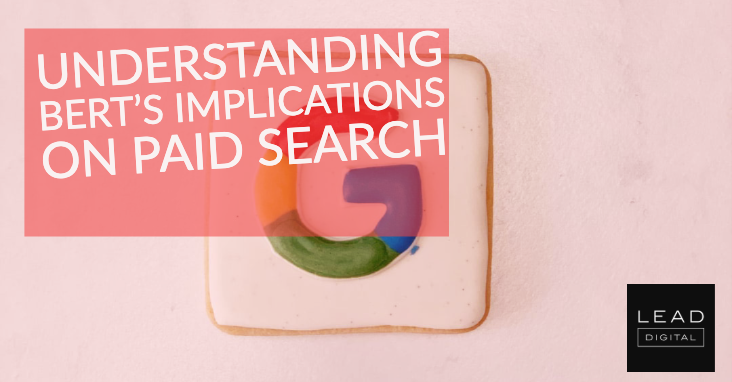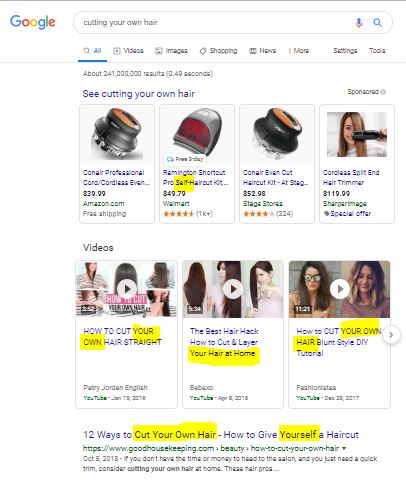 By now, you have probably heard of Google’s most recent update. BERT, affecting 10% of U.S. English searches is one of the largest algorithm changes in a while.
By now, you have probably heard of Google’s most recent update. BERT, affecting 10% of U.S. English searches is one of the largest algorithm changes in a while.
So far, the analysis of BERT’s implications has entailed impact on natural search and strategy for organic search result optimizations.
But if BERT is an organic algorithm change, does it mean that only SEO should be considered?
Don’t forget to also think about what BERT means for your paid search approach.
While in its updates, Google does not mention advertising, focusing solely on organic search is short-sighted.
It is true that nothing specifically changes for SEM. Ad formats, match types, keyword bidding options, and other settings are all staying the same.
Still, BERT will have SEM implications.
BERT’s Impact on SEM
As with SEO, BERT is not impacting SEM through new elements.
Instead, BERT makes it more important than ever before to adopt best practices for intent-based strategies.
With organic results now better at interpreting people’s needs, SEM ads will appear in a more informative context.
To keep users engaged and effectively supplement organic results, PPC ads will need to work harder at addressing user intent.
Until now, Google would often ignore certain words in a query. However, these prepositions, adjectives or pronouns hold key intent signals. Thus, focusing on the most popular words in a query was misleading.
With BERT, Google realizes that all words need to be interpreted together, returning more targeted and better informed organic results.
Paid search results are thus finding themselves in a new landscape.
For example, a query for “cutting your own hair” will not merely feature tips on haircutting, but focus on those results with tips for someone cutting their own hair.
Paid search ads will have to be even more targeted to convince Google that they are relevant enough to appear alongside ever more curated organic results.
It will be now even more critical to tailor ad copy and landing pages to keywords. And for greatest success, auditing organic results for insights will need to be a key step in paid campaign creation.
Let’s consider these search results for the above-mentioned phrase.

Videos in the organic results mention “your own” and “your hair at home”. The latter is particularly telling of BERT’s advances.
Not only did BERT help find a video for people looking to cut their own hair, but further figured out that this is likely to be happening at home.
By contrast, only one of the four paid ads mentioned the word “self” in the description and only one of the four shows a person trimming their own hair.
The other two ads, at a first glance, are not necessarily featuring something suited for anyone looking to cut their own hair.
They are easily overlooked and will likely have lower engagement. This is all while they are actually for cutting one’s own hair.
In the new search landscape, BERT may not be that forgiving and those paid search ads that do not clearly align with user intent may need to pay a higher premium for keeping their seat at the table.
Focusing on an Intent-Based PPC Strategy
If until now your paid search strategy has not been based on intent, BERT will make incorporating intent a priority.
However, a true intent-based approach will need to go beyond merely better ad text customization.
A full-fledged intent-based strategy will need to be supported by aligning campaigns, budgets, goals, and metrics with each of a user’s intent stages.
Due to budget and organizational constraints, it is not always possible to fund initiatives for all intent stages and that can be something to strive for.
In these cases, having an intent-based structure is a scalable starting point for future growth.
Leveraging automation is another approach. While automation in paid search is not new, this will assist in the growing intent-centric landscape.
Dynamic ad solutions (e.g., Responsive Search Ads) and auto-optimized settings position campaigns well to algorithmically show the highest-potential ads and those ads that align with algorithmically inferred intent vs. the more manual, reactive ad testing. – Read more



